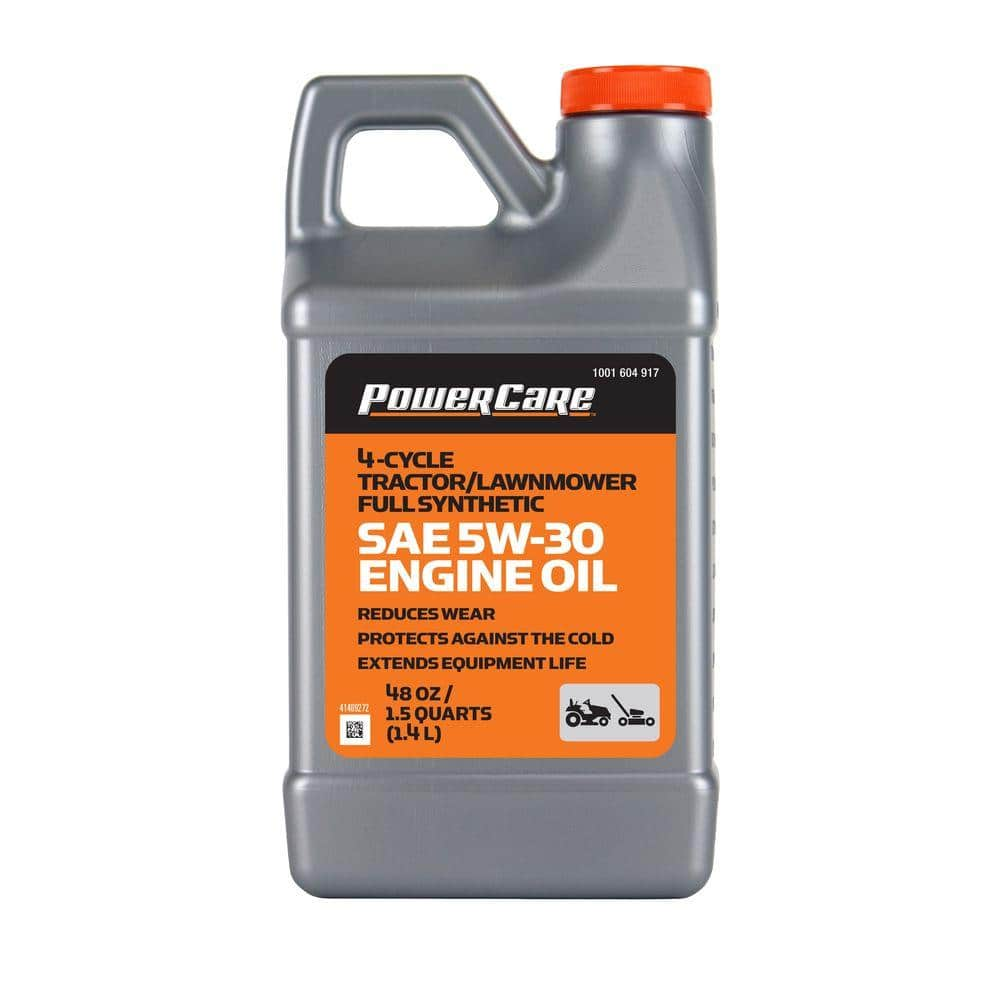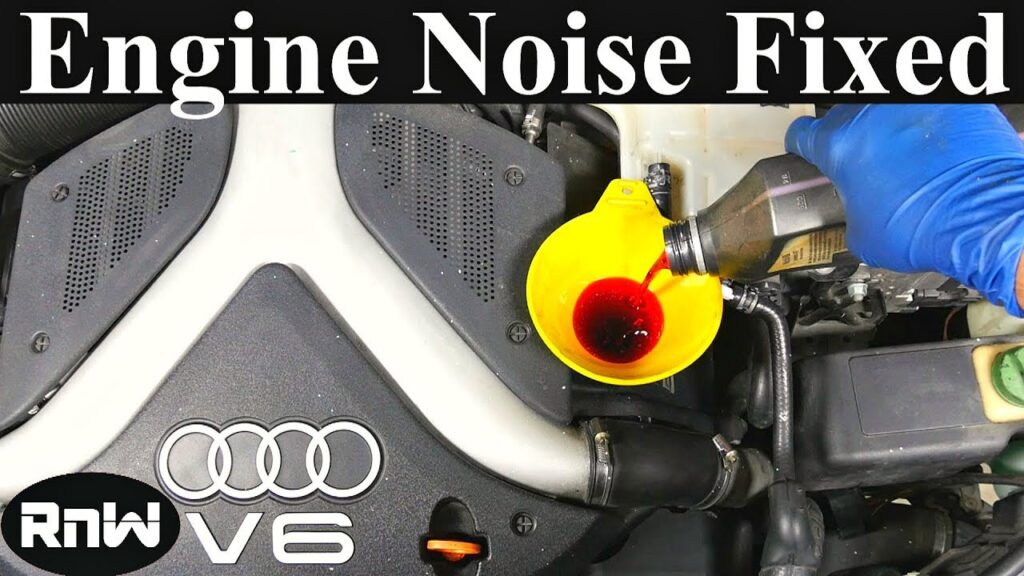For the best oil for a lawn tractor engine, consider using Briggs & Stratton Synthetic Oil. This high-quality detergent oil ensures compliance with the manufacturer’s warranty.
Using the recommended oil type is crucial for optimal engine performance and longevity. Before choosing an oil, always check the manufacturer’s guidelines for the correct oil weight and specifications for your specific lawn tractor model. By following these recommendations, you can keep your lawn tractor engine running smoothly and efficiently for years to come.
Introduction To Lawn Tractor Engine Oil
Discovering the best oil for your lawn tractor engine is crucial for optimal performance and longevity. Selecting the right oil ensures proper lubrication and protection, enhancing your lawn tractor’s efficiency and durability. Regularly changing the oil according to manufacturer recommendations is essential for maintaining a healthy engine.
Importance Of Choosing The Right Oil
Choosing the correct oil for your lawn tractor engine is critical to its performance and longevity.
Using the right oil can improve engine efficiency and reduce wear and tear.
Conventional Vs Synthetic Oil
Conventional oil is affordable and good for standard use, while synthetic oil offers enhanced protection and performance.
Synthetic oil is ideal for extreme temperatures and extended oil change intervals.

Credit: www.homedepot.com
Factors To Consider When Selecting Oil
When selecting the best oil for your lawn tractor engine, there are several important factors to consider in order to ensure optimal performance and longevity of your equipment.
Viscosity Grades Explained
Viscosity refers to the oil’s resistance to flow. It’s crucial to choose the right viscosity grade for your lawn tractor engine to guarantee proper lubrication and protection. The viscosity grade is typically indicated by a number, such as 10W-30, where the first number represents the oil’s viscosity in cold temperatures and the second number represents its viscosity at operating temperatures.
Oil Types And Engine Compatibility
Choosing the right type of oil for your lawn tractor engine is essential for its smooth operation. Different engine types, such as air-cooled or liquid-cooled, may require specific oil formulations to ensure proper lubrication and cooling. It’s important to consult the manufacturer’s guidelines or your owner’s manual to determine the appropriate oil type and viscosity grade for your specific lawn tractor engine.
Top Recommended Oils For Lawn Tractors
Choosing the right oil for your lawn tractor engine is crucial to ensure optimal performance and longevity. With a myriad of options available, it can be overwhelming to determine the best oil for your specific needs. To simplify this process, we’ve curated a list of the top recommended oils for lawn tractors, categorized based on their performance and value for money.
Best Overall Performance Oils
When it comes to the best overall performance oils for lawn tractors, certain options stand out for their exceptional quality and ability to protect critical engine parts. These oils offer outstanding engine protection, ensuring that your lawn tractor operates at its best. Here are some of the top picks in this category:
- AMSOIL Synthetic Oil – Known for its ultra-fast protection and unsurpassed wear protection, AMSOIL synthetic oil is a top choice for those seeking the highest level of performance for their lawn tractor engines.
- Royal Purple Motor Oil – Renowned for its exceptional engine protection and wear resistance, Royal Purple motor oil is a premium option that delivers outstanding results.
Value For Money Picks
For those looking for budget-friendly yet reliable options, there are several oils that offer great value for money without compromising on quality. These oils provide the essential protection and performance needed for lawn tractor engines, making them ideal choices for cost-conscious users. Here are some value for money picks:
- Countyline Lawn Mower Oil – Offering solid performance at an affordable price point, Countyline lawn mower oil is a reliable option for maintaining your lawn tractor without breaking the bank.
- Tractor Supply Company Oil – With a reputation for providing quality oils at competitive prices, Tractor Supply Company offers a range of oils that deliver reliable performance for lawn tractors.
Brand-specific Oil Recommendations
Discover the best oil for your lawn tractor engine with brand-specific recommendations. Ensure optimal performance and engine longevity with the right oil choice for your specific make and model. Trust expert advice for maintaining your lawn tractor’s engine in top condition.
Brand-Specific Oil Recommendations: When it comes to selecting the best oil for your lawn tractor engine, it’s important to consider brand-specific recommendations to ensure optimal performance and longevity. Here are some of the top brand-specific oil recommendations for Briggs & Stratton, Kawasaki, Kohler, and Toro engines:Briggs & Stratton Engines
Briggs & Stratton recommends using their own brand of oil, which is specially formulated for their engines. This oil is available in both synthetic and conventional blends and is designed to provide superior protection against wear and tear, as well as reduce engine deposits. When selecting oil for your Briggs & Stratton engine, be sure to choose the appropriate viscosity grade based on your climate and operating conditions.Kawasaki, Kohler, And Toro Engines
Kawasaki, Kohler, and Toro engines have their own unique oil recommendations as well. Kawasaki engines require a 10W-30 oil that meets API service class SJ or later, while Kohler engines typically require a 10W-30 or 10W-40 oil that meets API service class SJ or later. Toro engines require a 30-weight oil that meets API service class SG or later. It’s important to note that while brand-specific oils are recommended, there are also other high-quality oils available on the market that meet these same requirements. Just be sure to choose an oil that meets the necessary viscosity and service class specifications for your engine. In conclusion, selecting the best oil for your lawn tractor engine is crucial for maintaining optimal performance and extending the life of your equipment. By following brand-specific oil recommendations or selecting a high-quality oil that meets the necessary specifications, you can ensure that your engine is properly lubricated and protected against wear and tear.Understanding Oil Labels And Specifications
Choosing the best oil for your lawn tractor engine requires understanding oil labels and specifications. Look for oils specifically designed for small engines, ensuring they meet the viscosity and performance requirements of your lawn tractor. Regularly checking and changing the oil according to the manufacturer’s recommendations will help keep your lawn tractor engine running smoothly.
When it comes to maintaining your lawn tractor, one of the most important things you need to do is to change its engine oil regularly. But with so many different types of oil available in the market, choosing the best one for your machine can be quite confusing. That’s where understanding oil labels and specifications comes into play.Api Service Classifications
The American Petroleum Institute (API) has set service classifications for engine oils, which are represented by two letters. The first letter represents the type of engine (S for gasoline and C for diesel), and the second letter represents the level of performance (the higher the letter, the better the performance). For example, SJ is a common service classification for gasoline engines, while CJ is commonly used for diesel engines.Sae Viscosity Ratings
The Society of Automotive Engineers (SAE) has set viscosity ratings for engine oils, which are represented by a number followed by the letter W (which stands for winter). The lower the number, the better the oil flows in cold temperatures. For example, 5W-30 is a common viscosity rating for lawn tractor engines, which means the oil flows well in cold temperatures and maintains its thickness when the engine gets hot. When choosing the best oil for your lawn tractor engine, it’s important to check the owner’s manual for the manufacturer’s recommended oil viscosity and API service classification. It’s also important to consider the type of engine you have (gasoline or diesel) and the conditions you’ll be operating it in (cold or hot temperatures). By understanding oil labels and specifications, you can make an informed decision and ensure the longevity of your lawn tractor engine.Oil Change Best Practices
For the best oil for your lawn tractor engine, opt for high-quality synthetic oils like AMSOIL or Royal Purple for optimal engine protection. These oils offer outstanding wear protection and ensure the longevity of critical engine components. Stick to a regular oil change schedule to maintain peak performance.
Proper maintenance of your lawn tractor engine is essential to ensure its longevity and optimal performance. One of the key aspects of engine maintenance is regular oil changes. By adhering to best practices, you can extend the lifespan of your lawn tractor engine and keep it running smoothly. In this guide, we’ll cover the optimal oil change intervals and provide a step-by-step oil change process to help you keep your lawn tractor in top condition.
Optimal Oil Change Intervals
Regular oil changes are crucial for the health of your lawn tractor engine. For most lawn tractors, it is recommended to change the oil every 50 hours of use or at least once a year, whichever comes first. However, for heavy-duty use, such as towing or mowing in extreme conditions, more frequent oil changes may be necessary. Be sure to consult your lawn tractor’s manual for the manufacturer’s specific recommendations.
Step-by-step Oil Change Process
- Prepare the Lawn Tractor: Park the tractor on a flat surface, engage the parking brake, and allow the engine to cool down.
- Drain the Old Oil: Position a drain pan beneath the oil drain valve, remove the drain plug, and allow the old oil to drain completely.
- Replace the Oil Filter: Remove the old oil filter and replace it with a new, compatible filter to ensure proper filtration of the fresh oil.
- Refill with Fresh Oil: Using a funnel, carefully pour the recommended type and amount of oil into the oil fill port, as specified in your lawn tractor’s manual.
- Check Oil Level: After refilling, use the dipstick to verify that the oil level is within the recommended range. Add more oil if necessary.
- Dispose of Old Oil: Properly dispose of the old oil by taking it to a designated recycling center or an auto parts store that accepts used oil.
- Record the Change: Keep a record of the date and hours of use at the time of the oil change for future reference.
Synthetic Vs Conventional Oil: A Deeper Dive
When it comes to choosing the best oil for your lawn tractor engine, the decision between synthetic and conventional oil can be a crucial one. Each type of oil offers distinct advantages and is suitable for different usage scenarios. Let’s delve into the specifics of synthetic and conventional oil to help you make an informed choice for your lawn tractor engine.
Benefits Of Synthetic Oil
Synthetic oil offers several notable benefits for lawn tractor engines. It provides superior protection and lubrication, especially in extreme temperatures. With its advanced formulation, synthetic oil minimizes engine wear and tear, prolonging the lifespan of the engine components. Additionally, synthetic oil maintains its viscosity over a wider temperature range, ensuring consistent performance across varying weather conditions.
Conventional Oil: When To Use It
Conventional oil is a suitable choice for lawn tractor engines that operate in moderate temperature conditions and undergo regular maintenance. It is an economical option that meets the basic lubrication needs of the engine. If your lawn tractor is used infrequently or operates in a consistent, mild climate, conventional oil can adequately fulfill the lubrication requirements.

Credit: www.youtube.com
Maintaining Your Lawn Tractor Engine
For optimal performance, select a high-quality synthetic oil for your lawn tractor engine. Regularly changing the oil, following manufacturer guidelines, ensures proper lubrication and engine longevity. Choose the best oil to keep your lawn tractor running smoothly.
Regular Oil Checks
Regularly checking the oil in your lawn tractor engine is crucial to ensure optimal performance and longevity. Inspect the oil level before each use to prevent engine damage. Monitor for any signs of leaks or oil discoloration.Troubleshooting Common Oil Issues
If you encounter issues such as excessive oil consumption or smoke coming from the exhaust, it could indicate underlying problems. Consult your manual for troubleshooting guidance or seek professional assistance. Remember to change the oil according to the manufacturer’s recommendations to maintain peak performance. Regular maintenance is key to a healthy lawn tractor engine.Additional Tips And Tricks
For the best oil for your lawn tractor engine, consider synthetic oils for superior protection and performance. Look for oils specifically designed for small engines, and always follow the manufacturer’s recommendations for the type and viscosity of oil to use.
Additionally, be sure to change the oil at regular intervals to keep your lawn tractor running smoothly.
Seasonal Oil Change Considerations
When changing the oil in your lawn tractor engine seasonally, ensure to use the recommended oil viscosity for the specific weather conditions. Thicker oils are ideal for warmer temperatures, while thinner oils work best in colder climates.
Extending Engine Life With Proper Lubrication
To extend the life of your lawn tractor engine, regularly check the oil level and quality. Proper lubrication reduces friction and wear on engine parts, leading to increased longevity.

Credit: www.mainstreetmower.com
Conclusion: Ensuring Engine Longevity
To ensure engine longevity for your lawn tractor, it’s crucial to use the best oil. Opt for high-quality synthetic oils specifically formulated for small engines. Regular oil changes, following manufacturer recommendations, will help protect critical engine parts and provide outstanding engine protection, ensuring optimal performance and durability.
Summary Of Key Takeaways
Choosing the best oil for your lawn tractor engine is essential for ensuring its longevity and optimal performance. Synthetic oils offer superior protection and lubrication, while conventional oils are more budget-friendly. Consider the specific requirements of your lawn tractor engine, such as viscosity and additives, before making a decision. Regular oil changes are crucial for preventing engine wear and maintaining efficiency.
Final Thoughts On Oil Selection
When it comes to selecting the best oil for your lawn tractor engine, prioritizing quality and compatibility is key. Synthetic oils provide outstanding protection and performance, especially in challenging operating conditions. However, conventional oils can be a cost-effective alternative without compromising basic engine lubrication. Always refer to the manufacturer’s recommendations and specifications to ensure the optimal oil type and viscosity for your specific lawn tractor model.
Frequently Asked Questions
What Is The Best Oil To Use In A Riding Lawn Mower?
The best oil to use in a riding lawn mower depends on the type of engine. Briggs & Stratton recommends using their Synthetic Oil, while Kawasaki, Kohler, and Toro have their own specific recommendations. It’s important to follow the manufacturer’s guidelines for oil type and change intervals.
Synthetic oil offers better protection and longer change intervals compared to conventional oil. Check the owner’s manual for specific oil recommendations and capacity.
Can I Use 10w30 Instead Of Sae 30 In My Lawn Mower?
No, you should not use 10w30 instead of SAE 30 in your lawn mower. SAE 30 is recommended for most lawn mowers, as it provides the necessary viscosity for the engine’s optimal performance. Using a different oil can lead to engine damage and decreased efficiency.
Always refer to your owner’s manual for the recommended oil type and viscosity.
What Oil Is Recommended For Briggs And Stratton Engines?
We recommend using Briggs & Stratton Synthetic Oil for your Briggs and Stratton engines. This high-quality detergent oil ensures compliance with the manufacturer’s warranty.
What Is The Best Oil For A 4 Stroke Lawn Mower?
The best oil for a 4-stroke lawn mower is SAE 30, specifically formulated for small engines.
Conclusion
Choosing the best oil for your lawn tractor engine is crucial for optimal performance and longevity. Consider the specific requirements of your engine and opt for high-quality synthetic oils for superior protection. Regularly changing the oil according to manufacturer recommendations is essential for maintaining a healthy engine.

